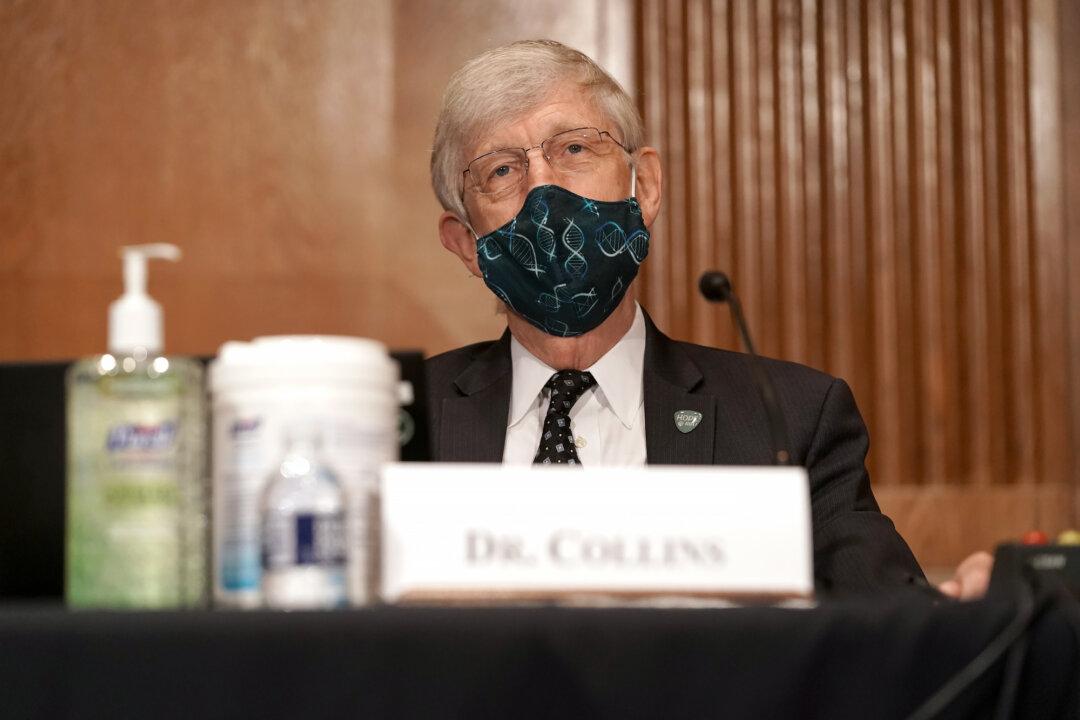Dr. Francis Collins, director of the National Institutes of Health (NIH), said Wednesday that given the relative lack of certainty about the protection provided by COVID-19 vaccines, it is better to go overboard on masking up than not do enough to help curb the spread of the CCP (Chinese Communist Party) virus.
Collins made the remarks in an interview on Fox Business Network’s “Cavuto: Coast to Coast,” in which he said getting a vaccine may provide people with a false sense of security.





